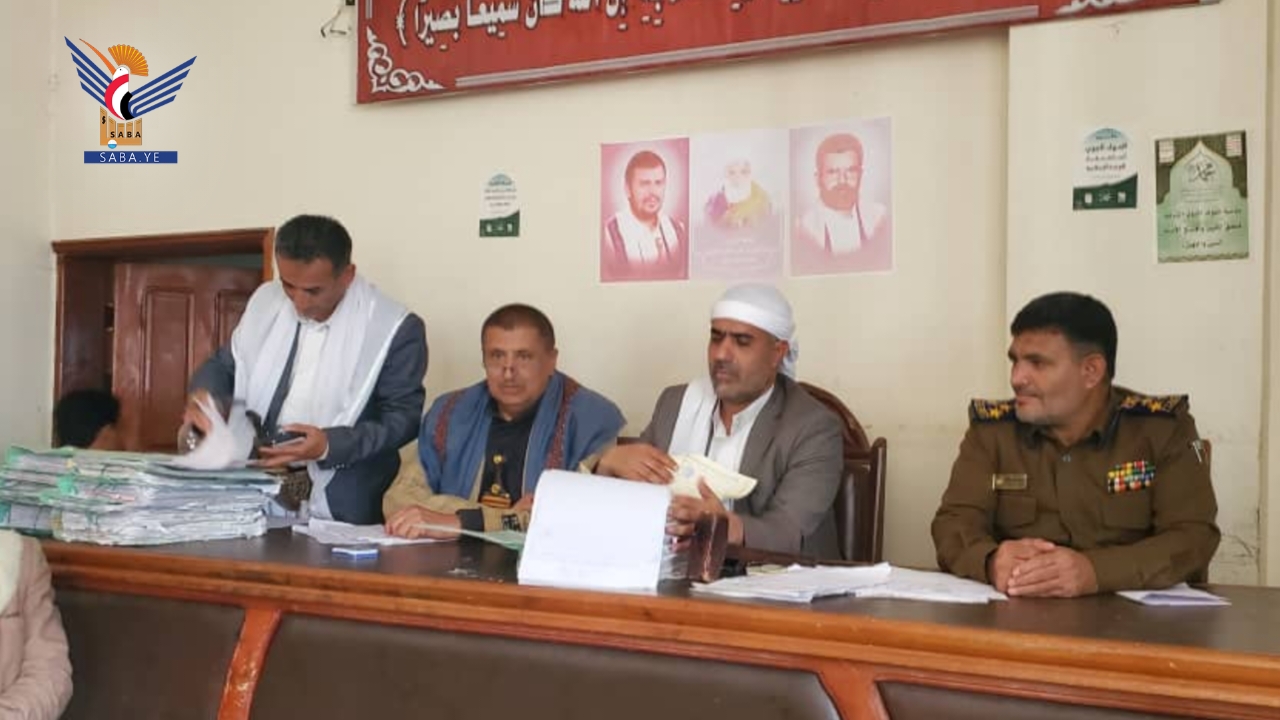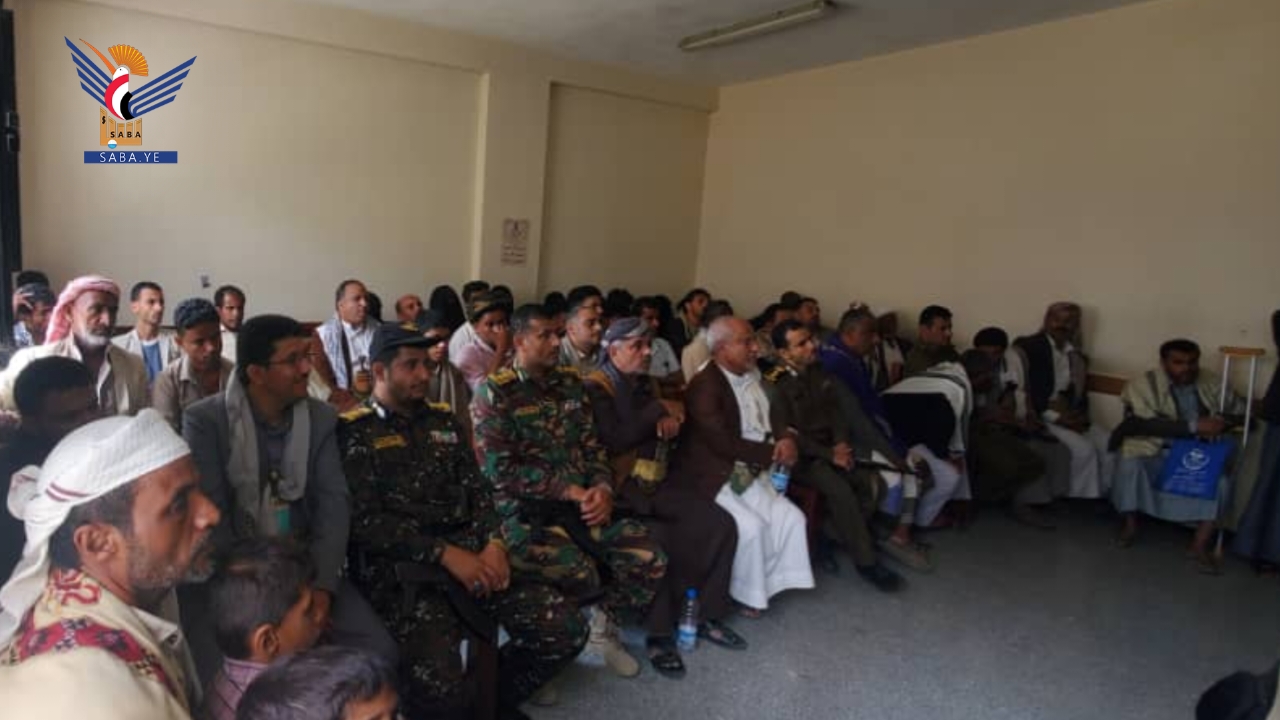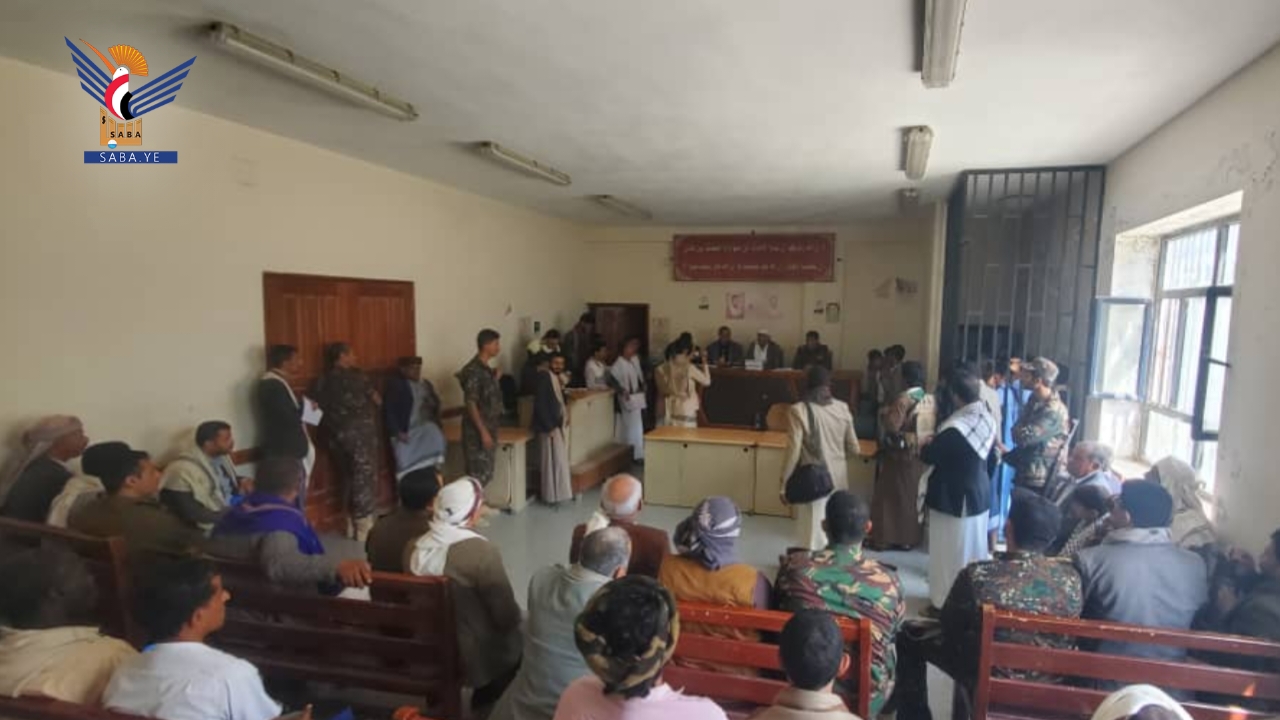
A significant reconciliation took place in Hajjah province bringing an end to two longstanding murder cases between al-Talib family from al-Muftah and al-Ghauth family from Kuhlan al-Sharaf. The cases, which had persisted for 11 years, had resulted in the deaths of three individuals from both sides.
The reconciliation ceremony, which was attended by high-ranking officials, including the Head of the Appeal Prosecution in the province, Judge Abdullah Al-Ahmar, marked a turning point in resolving the blood feud.
During the event, the blood relatives from both families publicly announced their decision to forgive the perpetrators and drop the charges, effectively closing the file on the case.
In his remarks, province undersecretary Adel Farhan praised the efforts of the mediation committee, which played a crucial role in bringing together both sides and fostering a spirit of reconciliation. He also highlighted the contributions of Sheikh Ahmed al-Sharafi, who was instrumental in the negotiations.
Both the Head of the Prosecution and the Head of the Criminal Court expressed their appreciation for the successful resolution of the murder cases, emphasizing the importance of peace and the role of reconciliation in restoring social harmony. The reconciliation was also seen as a vital step in combating the divisions and blood feuds that have long plagued certain communities in Yemen.
Province secrity director Brig. Gen. Hasan al-Qasimi, in particular, praised the reconciliation efforts, emphasizing the significance of the waiver by al-Talib and al-Ghauth families.
He lauded the families' embodiment of the principle of tolerance and mutual understanding, highlighting it as a beautiful example of reconciliation.
He further stressed the importance of unity among Yemen's people to confront external threats, particularly those from the American and Zionist enemies, who he argued seek to divide the nation and exacerbate internal conflicts through their tools and proxies.
In summary, this reconciliation not only resolved a longstanding blood feud but also underscored the importance of national unity and peace in Yemen, especially in the face of external challenges and attempts to destabilize the country through internal divisions.
The reconciliation ceremony, which was attended by high-ranking officials, including the Head of the Appeal Prosecution in the province, Judge Abdullah Al-Ahmar, marked a turning point in resolving the blood feud.
During the event, the blood relatives from both families publicly announced their decision to forgive the perpetrators and drop the charges, effectively closing the file on the case.
In his remarks, province undersecretary Adel Farhan praised the efforts of the mediation committee, which played a crucial role in bringing together both sides and fostering a spirit of reconciliation. He also highlighted the contributions of Sheikh Ahmed al-Sharafi, who was instrumental in the negotiations.
Both the Head of the Prosecution and the Head of the Criminal Court expressed their appreciation for the successful resolution of the murder cases, emphasizing the importance of peace and the role of reconciliation in restoring social harmony. The reconciliation was also seen as a vital step in combating the divisions and blood feuds that have long plagued certain communities in Yemen.
Province secrity director Brig. Gen. Hasan al-Qasimi, in particular, praised the reconciliation efforts, emphasizing the significance of the waiver by al-Talib and al-Ghauth families.
He lauded the families' embodiment of the principle of tolerance and mutual understanding, highlighting it as a beautiful example of reconciliation.
He further stressed the importance of unity among Yemen's people to confront external threats, particularly those from the American and Zionist enemies, who he argued seek to divide the nation and exacerbate internal conflicts through their tools and proxies.
In summary, this reconciliation not only resolved a longstanding blood feud but also underscored the importance of national unity and peace in Yemen, especially in the face of external challenges and attempts to destabilize the country through internal divisions.

